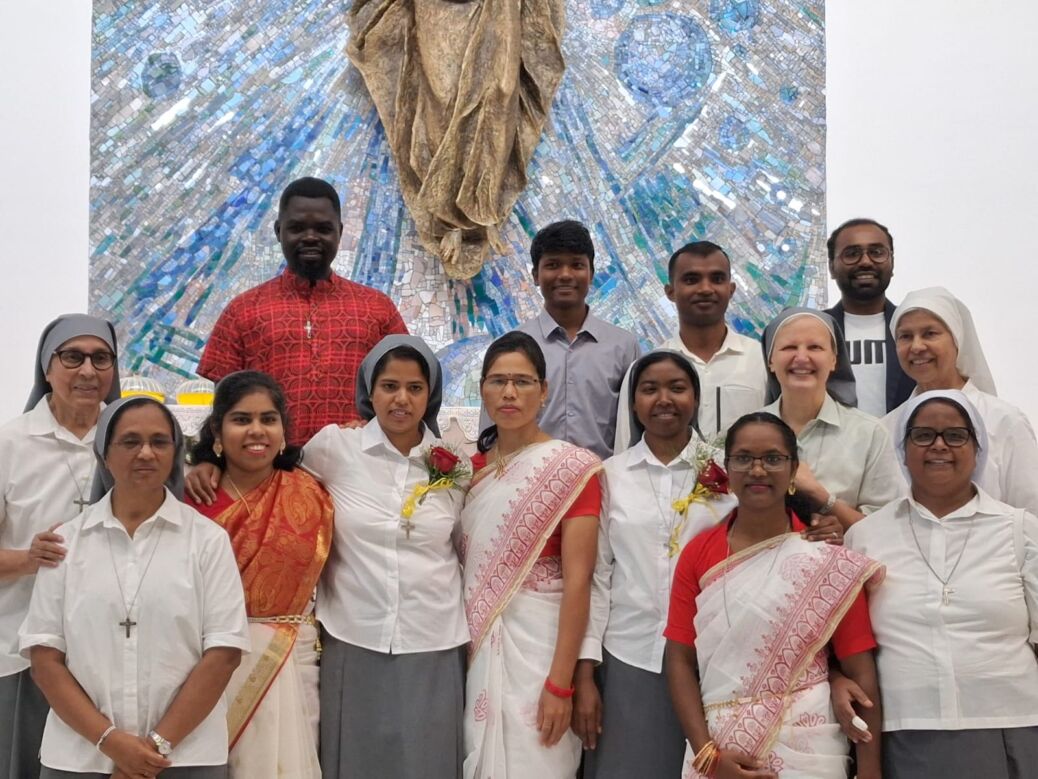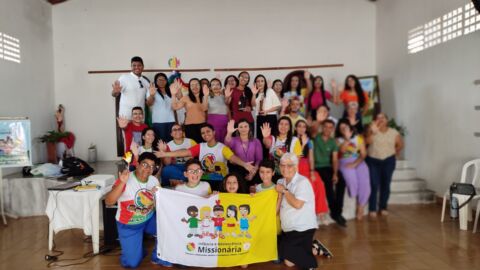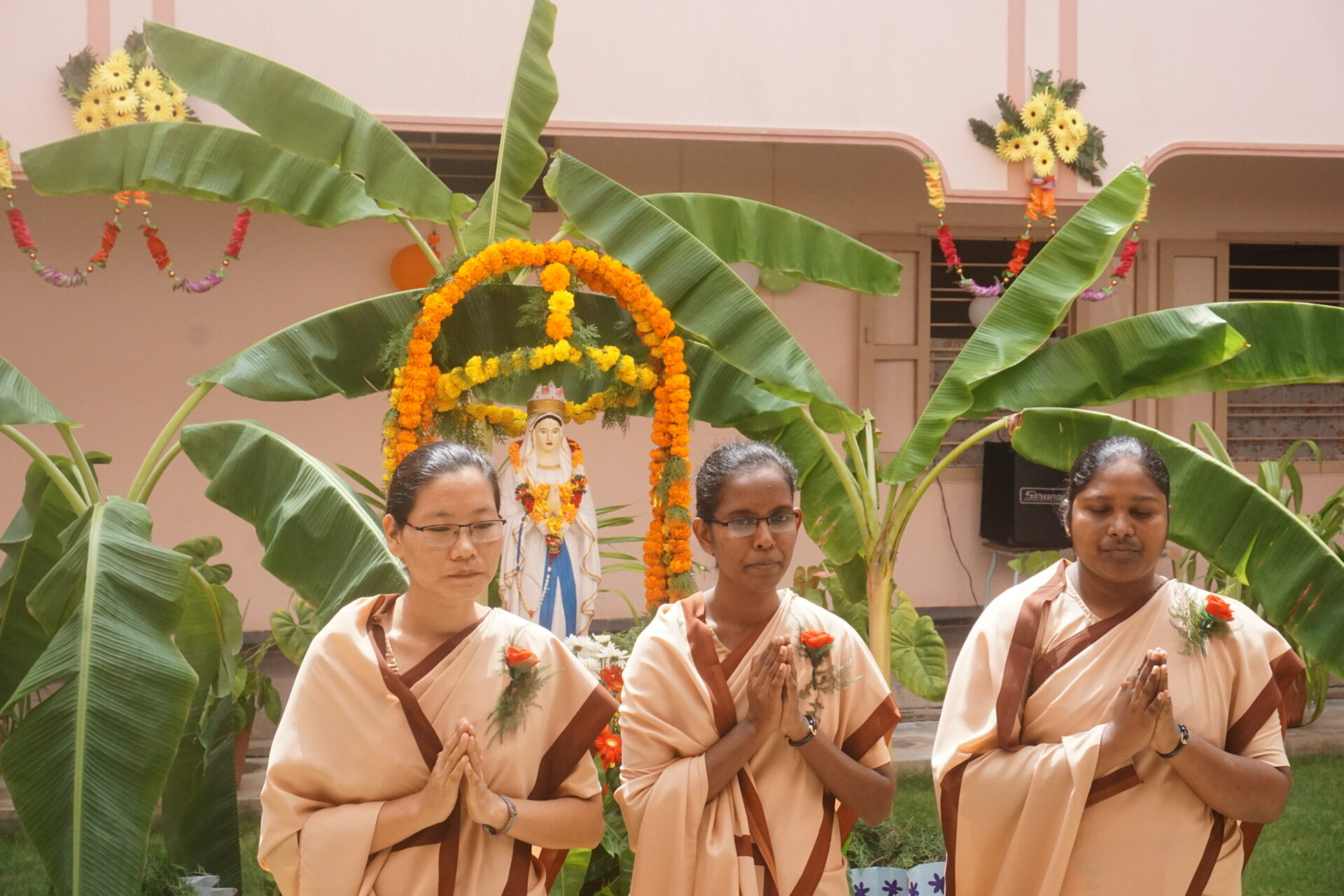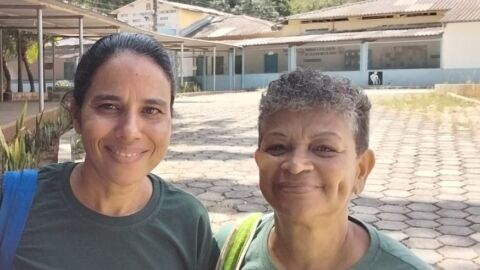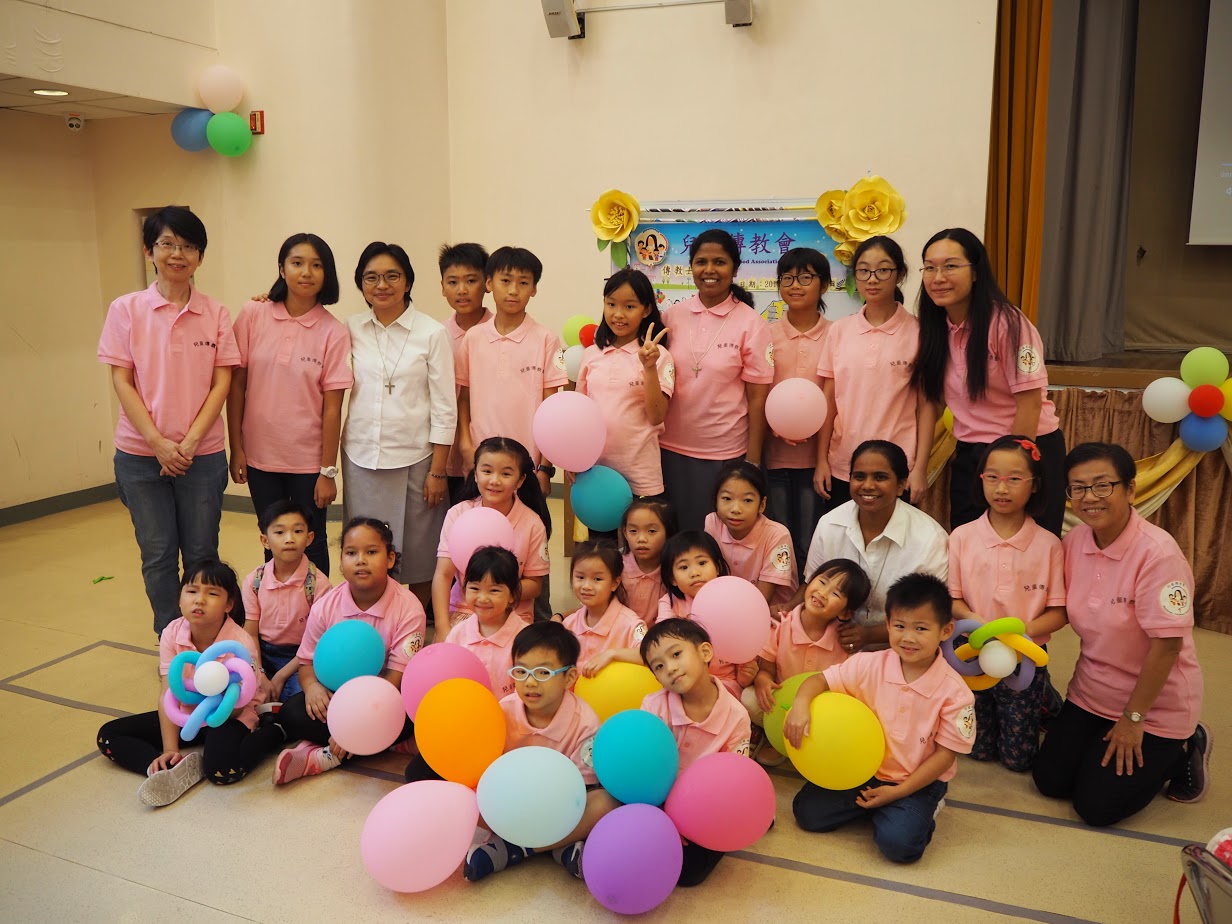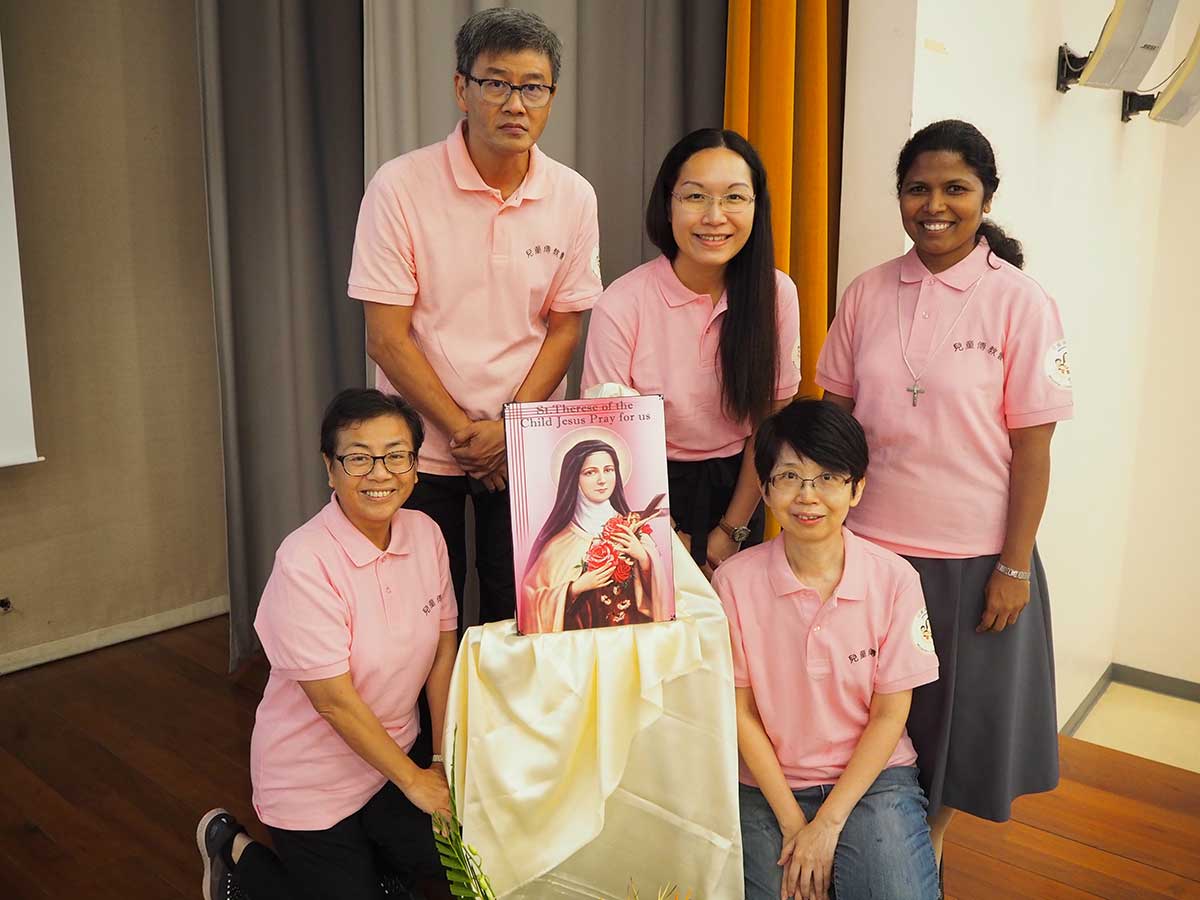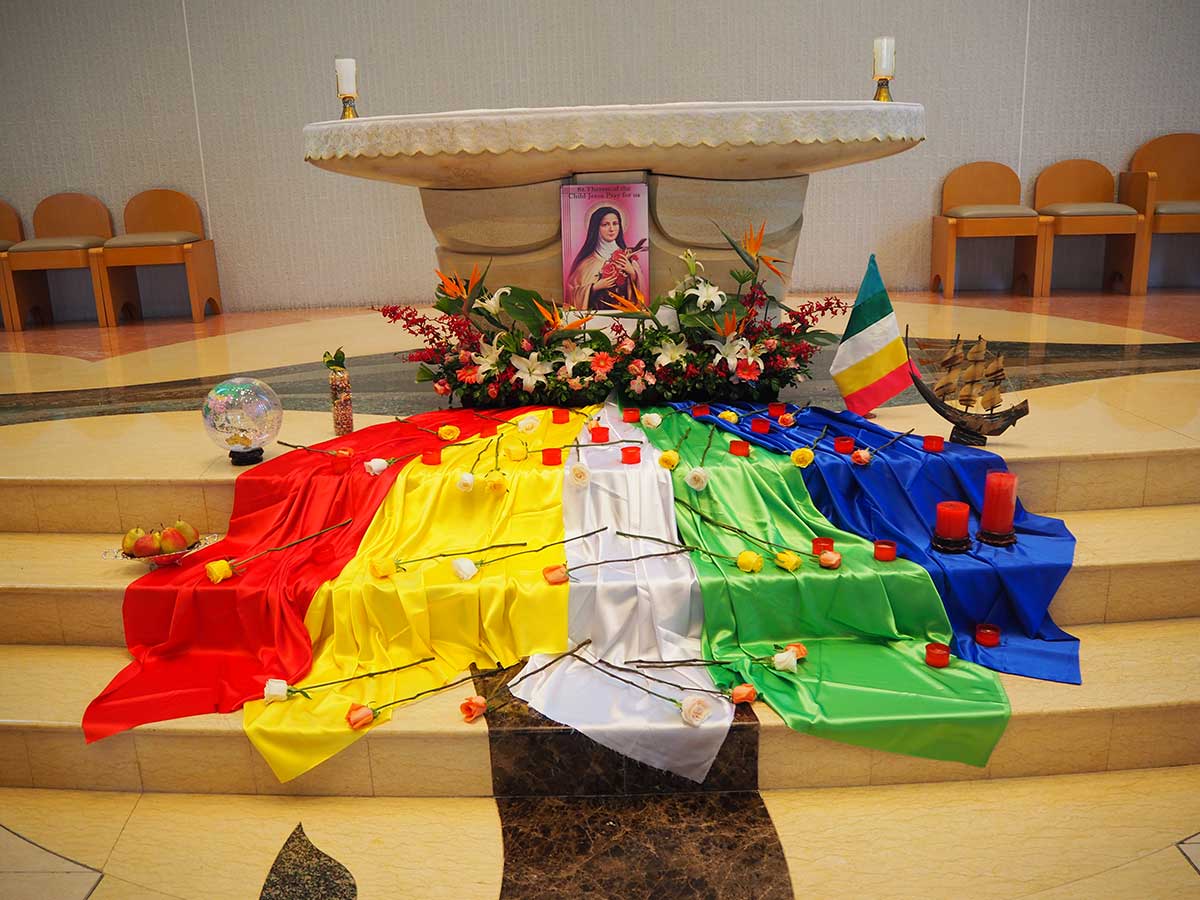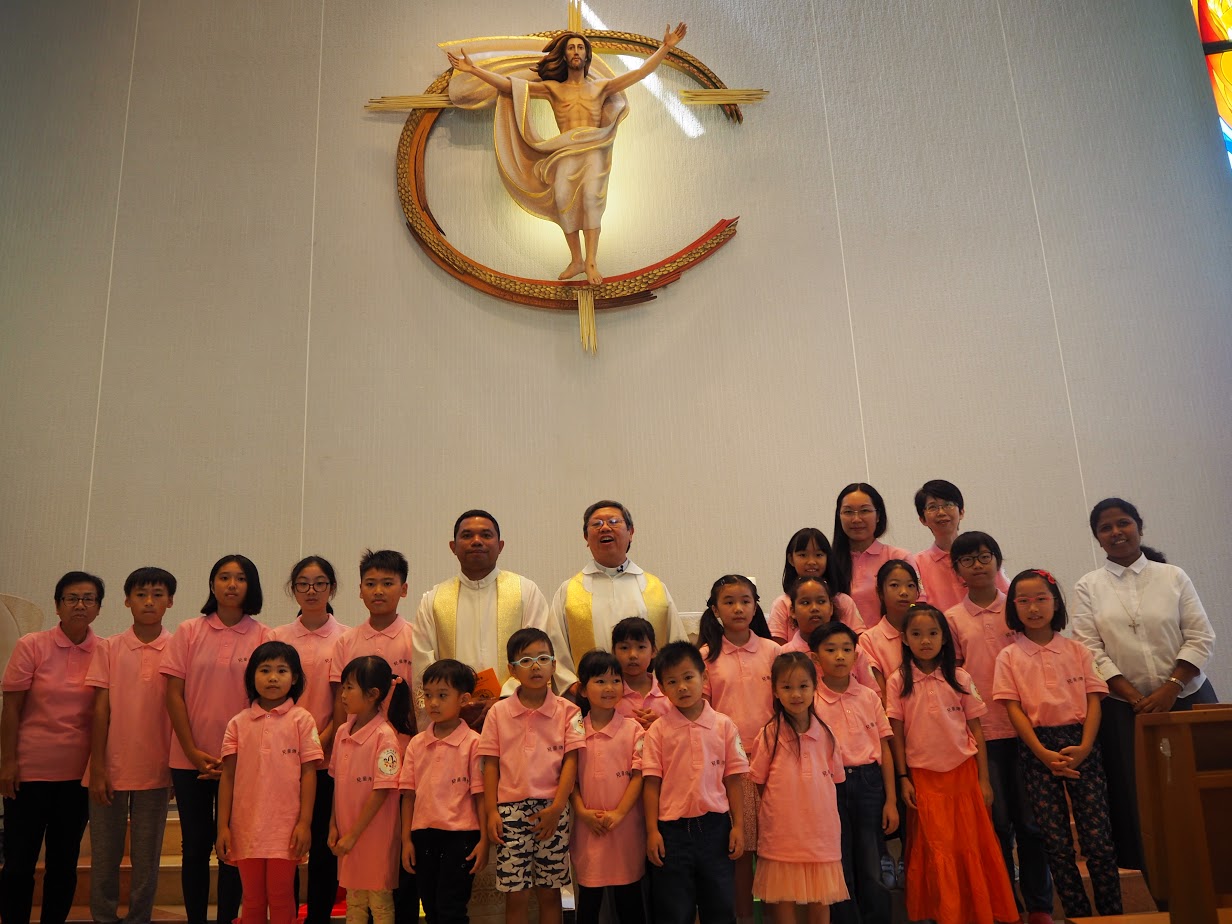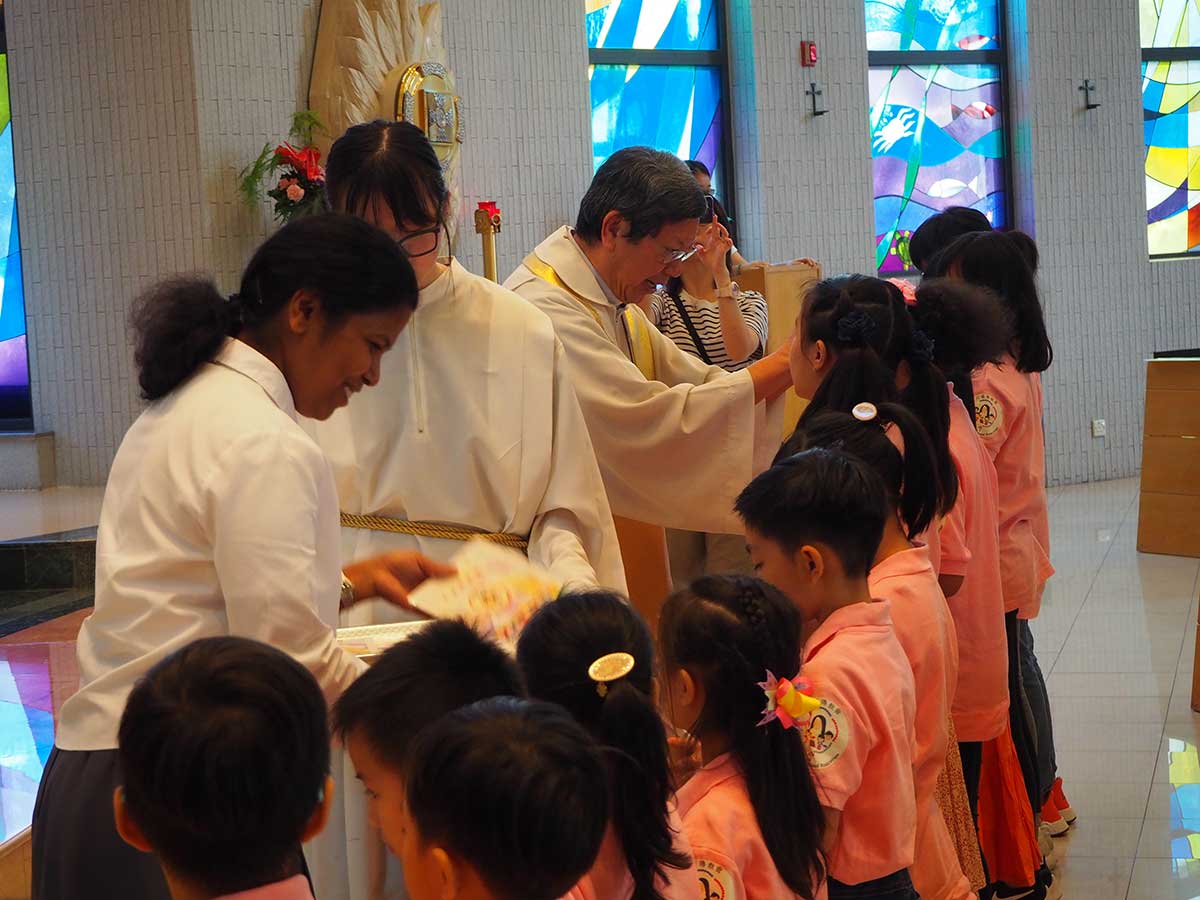On Saturday, September 14, at 10:30 a.m., in the parish church of Maria Regina in Pioltello, a transition that belongs not only to the liturgical calendar, but also to the profound basis of the vocational call took place. Sisters Happy and Merina pronounced their perpetual profession, that “yes forever”, which seals a journey that began years ago in distant lands, in Bangladesh, among villages and parishes where the Missionary Sisters of the Immaculate were a familiar presence.
Two different stories, two paths intertwined in the same radical choice: to surrender their lives to God through mission. Happy, with her contagious joy and the disarming simplicity of someone who entered the convent drawn by something inexplicable. Merina, with her doubts, overcome without denying them, her struggle to be understood by her family, her journey toward the realization of her preciousness in God’s eyes. Both have said a “yes” that does not erase the questions, but embraces them within a greater trust.
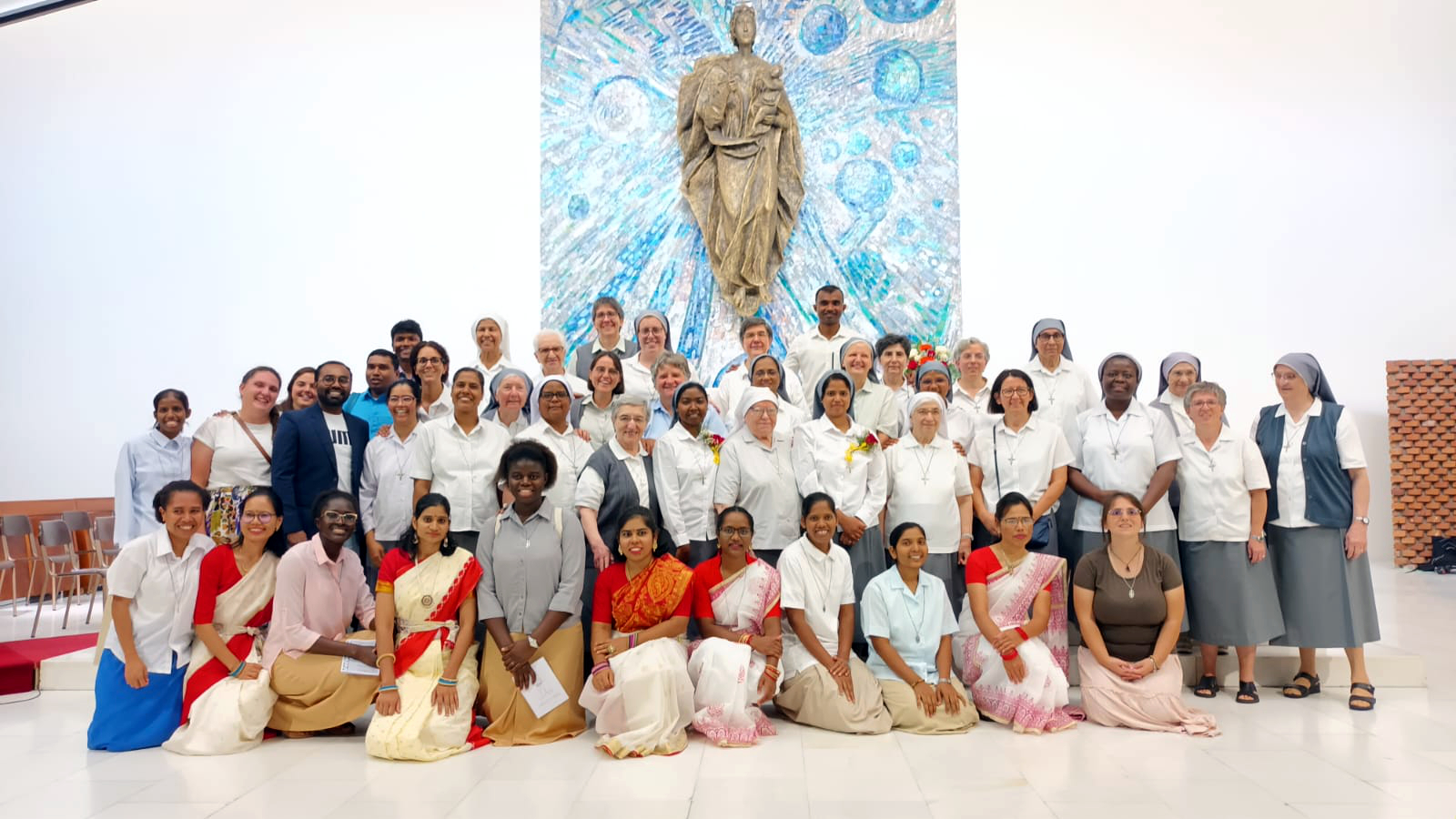
Happy: The Joy That Cannot Be Explained
When Happy recounts her vocation, a journey emerges, one of quiet attractions rather than dazzling certainties. In Bonpara, Bangladesh, she grew up watching missionary sisters, never really thinking that path could be for her. Until Sister Chondra, a Missionary sister of the Immaculate who lived in her parish, with her infectious joy in visiting the sick and being among the people left an imprint on her heart. “She was a very joyful sister,” Happy recalls, “Something attracted me.” It was not yet a definite calling, but a nameless desire: she wanted to be a joyful person like that sister.
At sixteen, she participated in a “Come and See” vocational program, almost out of curiosity, with the light heartedness of someone who thinks, “It costs me nothing to do this experience.” Upon her return, her decision left everyone in disbelief. Her father was direct: “You can’t stay in the convent.” Happy responded simply: “I’m going there; if I can’t stay, I’ll come back. My home is open to me.” She entered in 2007 without knowing what it meant to be a missionary, bringing only an undefined desire and a great deal of difficulty adapting. She came from a family of seven siblings, where freedom of expression was natural. “I was a very free person, and then I had to learn a lot, not to say everything so directly.”
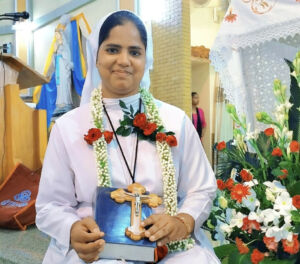
Two biblical words support Happy’s journey like silent pillars. The first is of John: “You did not choose me, I chose you.” She looks back on her journey and humbly acknowledges, “I was not a good person; I did not have many abilities, even now. It was God who chose me.” The initiative was never hers. Through various experiences, little by little, she discovered what God’s love is: a love that does not require perfection, but embraces limitations. “I have many limitations, but little by little I’ve discovered that His love is greater.”
The second word is that of Paul: “My grace is sufficient for you.” Happy remembers it with particular emotion, tied to the day of her perpetual profession celebrated in Italy, far from her parents, in a language she still struggles to master. A grace that manifested itself as inexplicable joy, making every worry disappear. The sufficiency of God: you do not need to be capable; you just need to let yourself be chosen. You do not have to be ready; you just have to trust that grace is always enough.
Merina: Precious in the Eyes of God
In the uncertain ground of choice, where doubts and desires intertwine, Sr. Merina has travelled a path of progressive awareness. As a child, she met missionary the sisters in her village who sang and told stories. After high school, she faced a choice: religious life or marriage? She entered the congregation, but her entire family did not welcome her decision. “My mother and sister still do not understand my choice,” she confides. Yet she was not alone: other sisters built bridges with her parents, and, gradually, she learned to embrace this pain without letting it turn into bitterness.

Seven years after her entrance into the Congregation, Merina recognizes a profound transformation. “My gaze has also changed. Before, I was not very aware of the “yes” I was saying. The first “yes” remained more in words; the “yes” I have now is a “yes” of daily life, a “yes” forever.” On the day of her perpetual profession, she thought of Mary’s “yes”: “She said yes, but she did not know what would happen. Yet, even to the cross, she upheld her “yes.” A faithfulness that transcends the incomprehensible. For her prayer card, she chose: “You are precious in my eyes” (Is 43:4). It sums up her journey: “So many times I wanted to escape, to run away from God. However, I could not escape. Because God loved me.”
Through persons, she experienced this love concretely. “I trust in the Holy Spirit, but I believe the Holy Spirit works through people.” She did not know how to speak in front of people; it was difficult to break the ice. She grew within the congregation: “Now I can speak in front of people; I feel more confident.” It is God’s small faithfulness’s, the details through which a love that accompanies growth is manifested. Her mission begins in everyday life: giving up her seat to an elderly person on the bus, being attentive to the needs of others, offering her time even when it means sacrifice.
A Message to Young People
To young women seeking their path, Happy and Merina offer words born from experience, not from prefabricated certainties. Happy proposes a verb: to cherish. “All experiences, good and bad, must be cherished, because we do not know our future. If we cherish the things that come to us in everyday life, we can live a better life.” She does not promise that everything will be fine; she does not offer easy guarantees. Instead, she proposes a contemplative attention to life as it presents itself, day after day. To cherish means to welcome without fear, to let experiences – even the difficult ones – become hidden treasures that perhaps one day, will reveal their meaning.
Merina, with disarming honesty, acknowledges, “The religious missionary life is not easy, but it is not impossible. When you taste the flavor of religious missionary life, you will feel joy, peace, the fullness of life, and love.” She does not promise ease, but fullness. “They must walk with courage and hope. Hope never disappoints.” She recalls her paternal grandfather, who was not yet a Christian: “Where you have gone, remain there with confidence and do what God has sent you to do.” He was Hindu, yet he gave her the wise advice that she cherishes as a blessing.
Two sisters, two stories, one common thread: the discovery that when God chooses, His grace is always sufficient. Their “yes forever” pronounced in Pioltello is not the end of the journey, but the beginning of a new chapter. Like that girl who entered the convent without knowing anything about vocation, carrying only the desire for a joy she saw shining in the eyes of a sister. Moreover, today she can say, “I don’t know everything yet, but I keep moving forward.” Because vocation is not a point of arrival, but a journey to be renewed every day, in faithfulness to the little things, in listening to a voice that continues to call.

